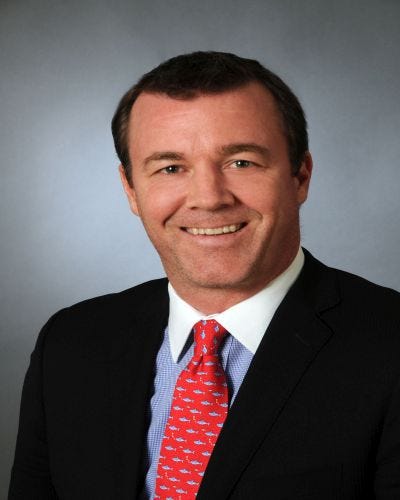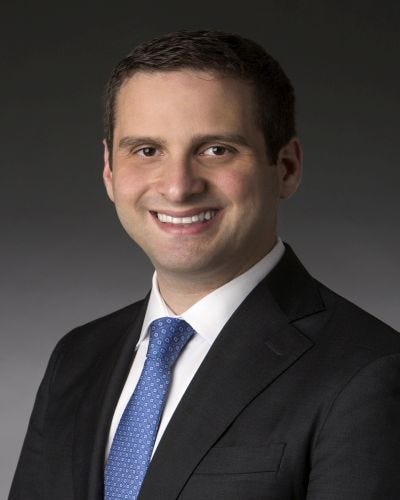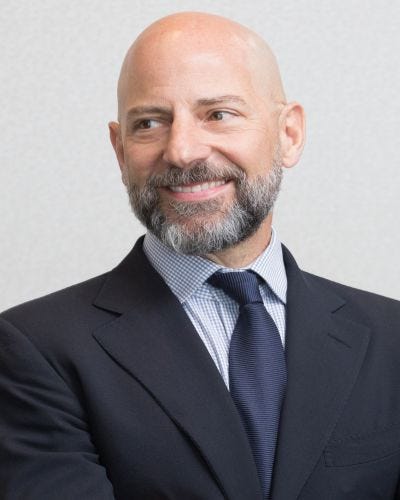Industry lawyers weigh in on FTC commissioners, social media and case law
In this Q&A with four health and nutrition industry attorneys, Natural Products Insider explored two court decisions with potentially broad implications, FTC's priorities under a Republican administration and the agency's guidelines pertaining to social media.

Created more than a century ago, FTC is responsible for protecting consumers and competition by targeting anticompetitive, deceptive and unfair business practices. Among other work, the agency polices dietary supplement advertising claims.
In this Q&A with four health and nutrition industry attorneys, Natural Products Insider explored two court decisions with potentially broad implications, the agency’s priorities under a Republican administration and FTC guidelines pertaining to social media.
INSIDER: What priorities have FTC Chairman Joseph Simons and his fellow commissioners laid out around consumer protection?

Ivan Wasserman, partner in Washington with Amin Talati Upadhye LLP: FTC’s first priority is privacy and data protection. That is no surprise with identity theft consistently in the top three most common consumer complaints to FTC (I was also a victim), frequent huge data breaches and our increasingly connected “e-world.”
Another priority is stopping outright fraudsters, such as the increasing problem of imposter scams, where someone poses as a government official or other trusted person and gets the (often elderly or non-English speaking) victim to wire money.
While deceptive advertising will continue to be a priority, FTC is going to increase its focus on non-traditional advertising, including apps, games, streaming videos, social networks, as well as online reviews (e.g., the use of fabricated reviews, undisclosed material connections with reviewers), unsubstantiated testimonials and native advertising, which is advertising that appears to be editorial content.
INSIDER: What dietary supplement advertising claims are most likely to trigger an FTC investigation and potential enforcement action?
Wasserman: The types of claims for dietary supplements most likely to trigger FTC actions have not changed much in my 25 years of FTC practice. They have and continue to include claims to treat or prevent serious diseases, claims targeting vulnerable populations such as children and the elderly, and the inevitable claims exploiting the latest emerging health threat, whatever that may be.
INSIDER: To what extent has FTC devoted resources in recent years to monitoring advertising claims on social media?

Justin Prochnow, shareholder in Denver with Greenberg Traurig LLP:
FTC has been pretty active over the last 10 years in regulating online claims made on websites, taking enforcement action and releasing guidance like the .com Disclosures.
More recently, FTC has increased its scrutiny of claims made on social media platforms, particularly with respect to the role of influencers in promoting products. In April 2017, FTC sent letters out to over 90 influencers and marketers of products, reminding them of the obligation to disclose material relationships when endorsing and promoting products on social media sites. In September 2017, FTC sent about 30 follow-up letters to some of those initial recipients that didn’t quite “get the message” originally conveyed.
In concert with those follow-up letters, FTC announced revisions to its guidance titled “The FTC’s Endorsement Guides: What People Are Asking” to incorporate specific guidance around endorsements made online and on social media platforms. And to complete the September trifecta, FTC announced an enforcement action initiated against two co-owners of an online gaming site for endorsing the site without disclosing they were owners.
FTC made it clear that online advertising, including advertising on social media, is subject to the same laws and regulations as traditional forms of advertising in print, radio and television media.
INSIDER: What are some tips for avoiding claims on social media that could attract the FTC’s unwanted attention?
Prochnow: Based on FTC’s recent guidance and enforcement actions, product promotion on social media is being monitored and scrutinized by the agency, so proper disclosures of material connections is a must. This can be done through clear hashtags like “#paidad” or “#paidsponsor” or by disclosing the relationship during the promotion, such as “I couldn’t believe it when _____ asked me to be a paid sponsor because I was already a big fan of the product!”
Companies must treat social media advertising no differently than other advertising, be it online or otherwise. Companies must ensure disclosures are made clearly and conspicuously, both in terms of size and location. A disclosure placed in the footer of a social media page, instead of near the claim, is unlikely to be viewed by FTC as sufficient. Similarly, disclosures in “mice-type” size (very small) are also unlikely to be viewed as sufficient. In addition to the focus on proper disclosures, substantiation continues to be an important issue for the agency.
Companies also must ensure there is sufficient scientific evidence to support claims for products. For heath claims, the standard is “competent and reliable scientific evidence.” Product categories that draw more attention from FTC are weight-loss products, and products promoting increased memory, focus and concentration, especially those targeted toward elderly consumers.
Companies must be prepared to produce strong science in support of claims, or they risk FTC enforcement action that can result in steep fines and onerous terms under a consent decree. Finally, the focus on health claims made on social media sites extends to FDA as well. FDA uses impermissible disease claims made on social media sites as further evidence of the intent of companies to sell products as drugs.
INSIDER: A few years ago, you were one of the trial lawyers representing Bayer in a complaint brought by FTC. What was the nature of the dispute?

Ben Mundel, associate in Washington with Sidley Austin LLP:
For a number of years, FTC attempted to raise the substantiation standard for dietary supplements. The agency has taken the position that drug-level clinical trials were needed, even though no law or guidance requires them. A number of companies settled and accepted this standard.
When FTC and the U.S. Department of Justice made the same allegations against Bayer’s probiotic product and sought hundreds of millions of dollars in damages, Bayer defended itself in court. After trial, the court rejected FTC’s case in its entirety. The court held Bayer’s claims were substantiated, and the company violated no law or FTC guidance.
INSIDER: Bayer ultimately prevailed in federal district court. Can you describe the court’s decision and its broader ramifications for the dietary supplement industry?
Mundel: This was a very important victory not only for Bayer but for the entire dietary supplement industry. The court made clear that consistent with federal law, dietary supplements are not drugs and cannot be regulated as drugs. Dietary supplement companies are allowed to market truthful information to consumers as long as the claims are supported by competent and reliable scientific evidence. That scientific evidence need not come from drug-level clinical trials, but rather a number of types of scientific studies can be used.
If Bayer had not prevailed in this case, nearly every dietary supplement on the market would be at risk. This victory was crucial to keeping the entire industry alive. The case also gives guidance to companies on how they can properly substantiate their claims.
INSIDER: You have represented Quincy Bioscience in a dispute with FTC and the Office of the New York Attorney General. What is the essence of the dispute between the government and the company?

John Villafranco, partner in Washington with Kelley Drye & Warren LLP:
FTC always has considered randomized, double-blind, placebo-controlled studies to be the “gold standard” for substantiation. In making the claim that the supplement Prevagen “improves memory,” Quincy Bioscience relied on a battery of tests, most importantly a “gold standard” clinical study titled the “Madison Memory Study.”
The primary study hypothesis was Prevagen could enhance cognitive function in adults without objective evidence of overt cognitive impairment (i.e., early dementia or pre-dementia). Analysis of adults with these mild cognitive issues—Prevagen’s target market—showed improved cognitive and memory skills on multiple tasks after using Prevagen in relation to placebo.
Nonetheless, on the eve of the 2017 presidential inauguration, by a vote of 2 to 0, Commissioners Edith Ramirez and Terrell McSweeny—both Democrats—voted to join then-New York Attorney General Eric Schneiderman in filing a complaint against Quincy. To the best of our knowledge, no complaint ever had been voted out with only two commissioners of the same party participating in the vote.
The complaint challenged Quincy’s use of subgroup analysis, but nowhere in the complaint did FTC explain why subgroup analysis was inappropriate in this case or how it supposedly yielded unreliable results. That is why Judge Louis Stanton, a highly respected federal judge in the Southern District of New York, dismissed FTC’s claim for lack of specificity, without even reaching our separate argument that the agency lacked a quorum when it voted out the complaint.
INSIDER: In 2017, Federal District Court Judge Louis Stanton dismissed the complaint brought by the regulatory agencies, but the case is now before the U.S. Court of Appeals for the Second Circuit. How could a decision by the appellate court set a precedent for the dietary supplement industry in claims substantiation?
Villafranco: Judge Stanton’s decision was a straightforward application of federal pleading rules. He agreed FTC hadn’t pleaded facts to support its theory about subgroup analysis. The government, like any other plaintiff, has to satisfy the Twombly/Iqbal pleading standard.
FTC’s General Counsel, who has since retired from the agency, chose to appeal. The Second Circuit could agree with Quincy and affirm the dismissal, or it could agree and leave open the option for FTC to amend the complaint, which we believe would require a vote of the newly-constituted, bi-partisan Commission.
Even if the Second Circuit disagrees with Judge Stanton’s analysis and thinks the government agencies pleaded their claims adequately, FTC would face other hurdles before being able to proceed. Our quorum argument against the original vote is one hurdle. If FTC were able to clear that bar, it still would have to establish the sub-group analysis cannot be used to substantiate dietary supplement claims. On that point, Judge Stanton correctly noted “the subgroup concept…is widely used in the interpretation of data in the dietary supplement field.”
In our view, the testimony and ultimate result would have far-reaching implications for FTC’s claim substantiation policy, defining what the competent and reliable scientific evidence standard really means in practice.
Editor’s note: Portions of this Q&A were edited for clarity.
About the Author
You May Also Like

